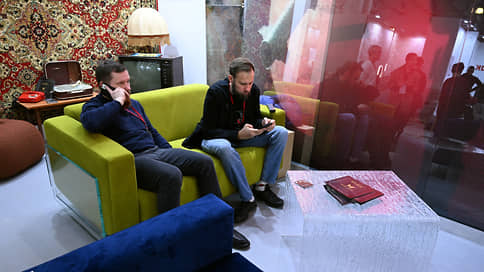Furniture workers are asked to introduce barriers to imported furniture

Russian furniture manufacturers have noticed a tendency to restore supplies from abroad. To protect the domestic market, they try to convince the authorities to introduce barriers to imports from unfriendly countries. Otherwise, the growth of demand for furniture from Italy and Germany can lead to a decrease in production volumes. But such products are presented mainly in the premium segment, and the presence of competition contributes to the development of the industry, reminds in the market.
The Association of Furniture and Woodworking Enterprises of Russia (AMDPR) at the end of March turned to the Ministry of Industry and Trade, proposing to introduce barriers to imported furniture from unfriendly countries, they told Kommersant in the organization. Their size was not specified there. To discuss the bets, the AMDPR proposes to create a working group, which will include the Ministry of Industry and Trade, the Federal Customs Service (FCS) and the company’s company.
In the Ministry of Industry and Trade, Kommersant explained that the appeal of furniturers has not yet been received. But the ministry is ready to consider the issue of duties on imported furniture as part of the working group on the customs tariff regulation of the Government Commission on Economic Development and Integration. The FCS also drew attention to the fact that such discussions are held at the level of the customs regulation subcommission. A separate working group will duplicate its functions, according to the department.
The supply of imported furniture in Russia was reduced under the pressure of sanctions and logistics restrictions. If in 2021 the volume of its sales reached 184 billion rubles, then at the end of 2023 it decreased by 30.4%, to 128 billion rubles, the AMDPR said. Then products from unfriendly countries amounted to 22% (28 billion rubles) from this volume. There is no data for 2024 in the organization yet. But the President of the AMDPR Alexander Shestakov says that the volume of sales of furniture from unfriendly countries, including from Italy and Germany, exceeded 30 billion rubles over the past year. The fee for imported furniture, including the European Union, according to him, the small – 9-12%.
The lack of direct sanctions and the preserved logistics chains allowed foreign companies to restore deliveries, says Mr. Shestakov. It does not exclude that by the end of 2025, sales of furniture from unfriendly countries will grow to 40 billion rubles. This, according to the AMDPR, can lead to a decrease in domestic production. Its volume in 2024 amounted to 75.8 million pieces in kind and 522 billion rubles. In the monetary. A year by the year, values increased by 12.6% and 17.3%, respectively. In the forecast for 2025, furniture workers laid a slowdown in the development of the market. In monetary terms, its turnover can add only 6%, up to 553 billion rubles.
Furnitors will not be able to compensate for the drop -down volume due to export. For Russian products, even in a number of friendly countries, duties are 30-60%, and prohibited in unfriendly supplies, explains Alexander Shestakov. Mr.Doors co -founder Maxim Valetsky also supports the introduction of duties to protect Russian manufacturers, although it doubts that foreign players will regain a significant market share. Russian companies have already accumulated a sufficient supply of consumer strength and loyalty, he is convinced. SEO Divan.ru Anton Makarov notes that there is little import in the segment of available furniture, but buyers of premium products are traditionally focused on Italy. On April 8–13, there were many Russians at the Salone del Mobile Milano industry exhibition, he says.
Mr. Makarov does not exclude that the positions of foreign products will be strengthened in case of further strengthening of the ruble. Although Sbercib was previously called this scenario unlikely: the gradual increase in imports will put pressure on the ruble. Analysts predicted a course at 90 rubles for the second quarter. per dollar, at the end of the year – 95 rubles. Natalya Novikova, director of the Kitchen category, says that the share of Russian goods on the network is now 72%, in the future it is planned to be brought to 80%.
The introduction of barracks for imported furniture Anton Makarov considers an excessive measure. “Healthy competition spurges the development of the industry and stimulates manufacturers to compete with the product, quality and service, which in the long run always affects the industries positively,” he argues. The problems of Russian furniturers, according to the expert, are more dictated by the total cooling of the economy due to the high cost of lending and increasing costs. For the past two years, logistics, rental of warehouses has been actively valued, a shortage of labor and so on, lists Mr. Makarov.








